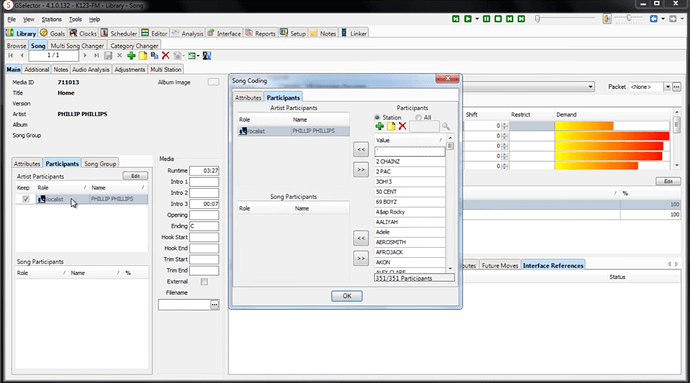We have a debate going here then. Good. All the following is imho, so I won’t repeat that in this post.
As I understand it, Roon benefits from being able to read well tagged files, because that helps it to do its magic accurately.
Classical is the problem child because tags were not originally designed for it, and all available tag sources are pretty rubbish generally.
All tagging systems should have consistency as a core requirement. This is why I have a lot of trouble with the vague guidance to use the “headline” artist, which might be the composer. Any chance of consistency is then already out of the window, so I think that is a bad approach.
Many classical loving computer audiophiles have invested enormous time in trying to bring consistency and accuracy to the tags in their collections. The lack of a clear standard, and the pride in the effort invested, mean that there are multiple home grown solutions, and human nature means the creators will be quite to extremely protective of their solution. I know this includes me, but I am trying to stay open to other options.
There will very likely never be a single standard, so I think Roon should accommodate users’ own tags where users want that, and if they conform to an identifiable standard then learn to use the source data in Roon.
If that could lead to a better crowd sourced set of tag data, hurrah, but I recognise the major obstacles to achieving such an outcome.
I totally agree with @jlo that composer must be the primary focus, and am really glad somebody else said so first!
I am also not surprised that others use Artist and/or Album Artist for the composer - because in many ways it works really well.
So here is my suggestion, or at least opening bid, for a standard which might become one of a handful accommodated by Roon. Fundamental to this will be extending the number of tags that the user can set to prefer their own. My provisional list is
Album Artist: Heresy it seems to many, but use the composer’s surname for most cases. It is intuitive and makes alphabetic sorts a breeze. It is also good for auto folder structures. For cds with say pieces by 2 or 3 composers, I split them into separate albums, as I don’t see why I have to be constrained by the cd format if I am using a server. I don’t always split up cds if they are of a single composer though. (For album name, if you have multiple instances of the same piece, put conductor in brackets after it so it is a unique album name for that composer). Where the surname is shared use Mozart L., Bach J.C., Strauss R. etc. If the cd is say a celebration of Callas then either use Maria Callas as the Album Artist, or Various Artists as there will be a lot of composers and there is a reason to keep the pieces all together as one album.
Artist: Now here I deviate from my own current practice. I now think that THIS is where the solo artist names should go, plus choirs which support an orchestral piece, although it will create some interesting auto flle naming. It also copes with different soloists being on different pieces on one album, or where only one movement of a symphony has soloists, which cannot be done if this goes in Album Artist.
Composer: self explanatory. Use the full name, Ludwig van Beethoven (I personally find Beethoven, Ludwig van hopelessly inelegant). Where there are variant spellings, like Rachmaninov or Rachmaninoff, use the spelling in Wikipedia. Russian composers particularly need an imposed standard as we know.
Conductor: Full name and just Simon Rattle, not Sir Simon Rattle. Makes sorting easier and some recordings will be before he was knighted so you can validly need to have both versions. Leave it to the Roon profiles to give them their proper honorifics.
Orchestra: Roon will have to learn that Vienna Philharmonic Orchestra is the same as Wiener Philharmoniker, all the variants on radio symphony orchestra names and so on. For purely choral pieces then the name of the choir could go here.
Comment: Odds and bits of information that don’t fit elsewhere, maybe not very much left in my case.
and maybe Op. no. too but my own tags haven’t reached that yet, and I haven’t investigated its availability. I try to keep Op. nos. in the track tag.
That’s about the longest forum post I’ve even written, which probably means it is too much in one go, but so be it.
Hoping for some great debate and an end result that helps us all to get better results for classical in Roon.




